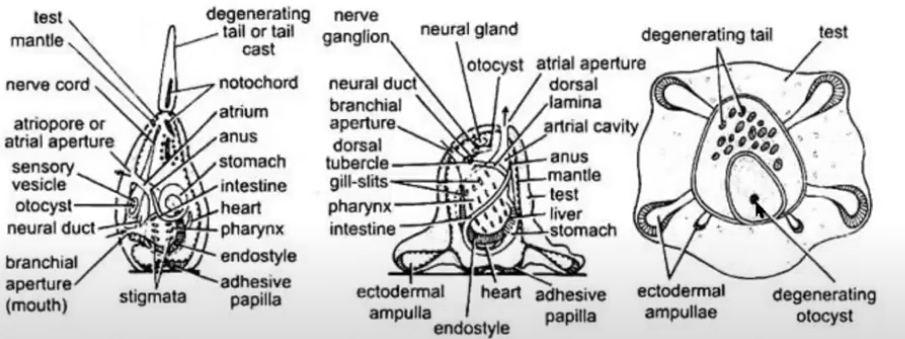Herdmania -Retrogressive Metamorphosis
Retrogressive Metmorphosis in herdmania

During metamorphosis the larva will loose all the chordate characters and attains an invertebrate like form. This type of metamorphosis, where highly advanced larval form ends in a lowly organised adult is called retrogressive metamorphosis.
Fixation of the larva: The larva swims for some time without feeding. It is fixed to a sub- stratum with the help of the adhesive papillae. It stands erect with the tail upwards. Then it undergoes retrogressive metamorphosis.
Changes during metamorphosis:
1.Notochord, nerve cord muscles and tail will be reduced. All the above structures will help the larva to swim freely in the water. But they are not useful to the sedentary adult
2.. The alimentary canal becomes complicated. The pharynx en larges ln size. The number of gill slits will increase by divisions. The stomach and intestine will grow.
3. The nervous system is reduced and the anterior part of nervous system is developed into a small neuralganglion attached to it neural gland is present. ;:
4. The atrial cavity enlarges into a sac like structure.
5. The eyespot and statocyst will completely disappear.
6. Gonads develop from mesencyme.
When these changes are taking place, the region between the adhesive papillae and mouth grows very rapidly. At the same time the growth of the dorsal region is stopped. Because of this, the body rotates through 1800 angle and mouth is brought to the top.

